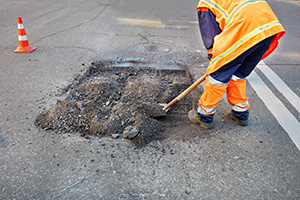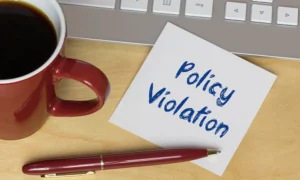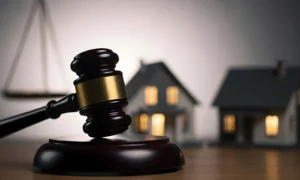The HOA board serves as the steward of any homeowners association. It is essential to comprehend the roles and responsibilities of the board, particularly for current or prospective board members.
What is an HOA Board?
The HOA board of directors is responsible for managing, maintaining, and operating the association. Board members are volunteer homeowners who their fellow homeowners elect. In a condo association, the condo board fulfills the same roles and responsibilities.
What are the HOA Board of Directors Responsibilities?
It is the job of the HOA board to lead and operate the association. This includes a wide range of tasks and responsibilities typically outlined by state laws and governing documents.
The most essential duties of an HOA board member include financial management, rule enforcement, maintenance and repairs, vendor coordination, homeowner communication, and ensuring legal compliance.
Let’s break these down below.
1. Financial Management
Every HOA community deals with money, and it is the responsibility of the board to manage these funds. Tasks include:
- Collecting dues and assessments
- Planning budgets
- Maintaining reserves
- Preparing financial reports
- Managing delinquent accounts
- Facilitating audits
- Filing taxes
- Obtaining insurance
- Managing risk
- Overseeing expenditures and payroll
- Managing investments
2. Rule Enforcement
Homeowners must adhere to the community’s governing documents, including its rules and regulations. The HOA board is responsible for enacting, updating, and enforcing these policies.
Rule enforcement typically includes:
- Sending written notice of violations
- Facilitating disciplinary hearings
- Implementing penalties such as fines or suspensions of privileges
- Filing lawsuits for compliance
- Reviewing and updating policies as needed
There is no room for selective enforcement in an association. Enforcement must be fair and consistent at all levels of the organization.
3. Maintenance and Repairs
One of the most critical responsibilities of HOA and condo boards lies in maintenance and repairs. The board must ensure routine maintenance of all common areas and assets owned by the association.
This includes:
- Hiring the right vendors
- Scheduling regular and preventive maintenance
- Ensuring the timely completion of projects
- Overseeing repairs and replacements
4. Vendor Coordination
The HOA board is also responsible for hiring and managing vendors. After all, associations can’t do everything on their own. Vendors are necessary for various services and projects, such as maintenance, repairs, insurance, delinquent collections, and professional services.
Vendor management tasks include:
- Sending out RFPs
- Screening potential vendors
- Negotiating contracts
- Communicating with vendors or their representatives
- Monitoring vendor performance
5. Communication
Proper communication is essential to the success of any community. Board members must practice open communication with each other, the community’s vendors and managers, and the residents.
The HOA board should utilize all available communication channels. It is also essential to consider the demographics of the community, as older residents may not be well-versed with digital tools.
When it comes to communication, the board must:
- Deliver notices on time and properly
- Communicate updates and announcements regularly
- Schedule open forums at board meetings
- Document all communications
In Virginia, Section 55.1-1816 of the Property Owners’ Association Act requires a designated portion of board meetings for homeowners to provide open comments. Similar provisions exist under Section 11B-111 of the Maryland Homeowners Association Act.
6. Legal Compliance
The board is responsible for ensuring compliance with all federal, state, and local laws. Additionally, the board must make sure the association complies with the provisions of the governing documents.
Of course, board members don’t always have the legal background for this job. For this reason, many self-managed boards hire an HOA attorney.
Fiduciary Responsibility of HOA Board Members
In addition to the managerial and operational responsibilities of the HOA board, there are also fiduciary responsibilities that board members must understand. These include the duty of care, the duty of loyalty, and the duty to act within the scope of authority.
Let’s break them down below.
1. Duty of Care
Board members must make informed decisions using sound judgment and reasonable diligence. This includes:
- Reading reports, budgets, and contracts before making decisions
- Attending meetings regularly
- Seeking expert advice when necessary
2. Duty of Loyalty
Board members must prioritize the association’s interests over personal gain. That means:
- Avoiding conflicts of interest
- Disclosing any potential conflicts
- Not using their position for personal advantage
3. Duty to Act Within the Scope of Authority
Board members must follow the association’s governing documents and applicable laws. They must:
- Enforce rules consistently
- Operate within the authority granted by the documents and statutes
- Avoid overstepping or making decisions beyond their power
What are the HOA Board Positions?
After electing the HOA board members, an internal election is then held. This is where the board decides who fills which positions. There are four leading positions on the HOA board: the president, the vice president, the secretary, and the treasurer. All other board members have non-office roles.
HOA President
The HOA president leads most of the board’s decision-making and typically has the final say on major issues. This position is not just about status. The role requires an individual with solid qualifications and a thorough understanding of the association’s rules and operations.
The president may assign responsibilities to committees to help manage tasks. They also lead all meetings, regardless of the topic or purpose.
During meetings, the president acts as a moderator. They open the meeting, guide the agenda, invite discussion, and call for votes.
HOA Vice President
People often struggle to define the duties of an HOA vice president. In most cases, they mirror those of the president. The VP steps in when the President is absent due to illness, travel, or other reasons.
This does not mean the vice president stays idle. The president may still assign them specific tasks or duties. They also need a clear understanding of the HOA’s rules and bylaws. This knowledge lets them assist members with questions or concerns.
HOA Secretary
The HOA secretary plays a vital role on the board. This officer is responsible for managing all official records and documents. One of the core HOA secretary duties is ensuring legal compliance by meeting all filing deadlines.
They also send out meeting notices, take minutes, and share documents with the board. Another key task involves reviewing documents to keep the association’s records current and accurate.
HOA Treasurer
The HOA treasurer manages all the association’s funds and oversees the board’s expenditure of them. They must track all financial activity, including income, bills, and approved expenses.
Creating the annual budget and setting aside reserves for emergencies also fall under their role. Treasurers may also invest funds with board approval when it supports the HOA’s goals.
Furthermore, part of the job is to update the board on financial health and flag any irregularities in reports. They must also follow all laws related to HOA finances.
Non-Officer Roles
Non-officer board members support the HOA by voting on decisions, serving on committees, helping with special projects, and communicating with residents. They share the same fiduciary duties as officers. Plus, they help ensure the association runs smoothly and fairly.
Does the HOA BOD Get Paid?
No, members of the HOA board typically don’t get paid for their service. Board members are volunteers, which means they don’t receive compensation in exchange for their work.
It is essential to review state laws and the association’s governing documents to determine whether payment is permitted. Most of the time, even waiving their HOA fees or giving them gifts can be misconstrued as a form of compensation.
Compensation is usually prohibited because it interferes with the volunteer status of board members. This can compromise the legal protections in place for volunteers, including specific insurance policies that are intended to provide coverage. Furthermore, it could bring up conflicts of interest.
Professional Help
The HOA board serves as the association’s representative in all matters. Being a board member is not always easy, as it entails several responsibilities and a significant time commitment. To help ease this burden, many associations hire an HOA management company.
Keymont Community Management offers expert management services to associations in Virginia, Maryland, and Washington, DC. Call us today at 703.752.8300 or contact us online to get started!
RELATED ARTICLES:
- Roberts Rules of Order Cheat Sheet
- What Is A Homeowners Association? A Beginner’s Guide To HOAs
- Know the Rules: Virginia HOA Laws Every Resident Should Understand



